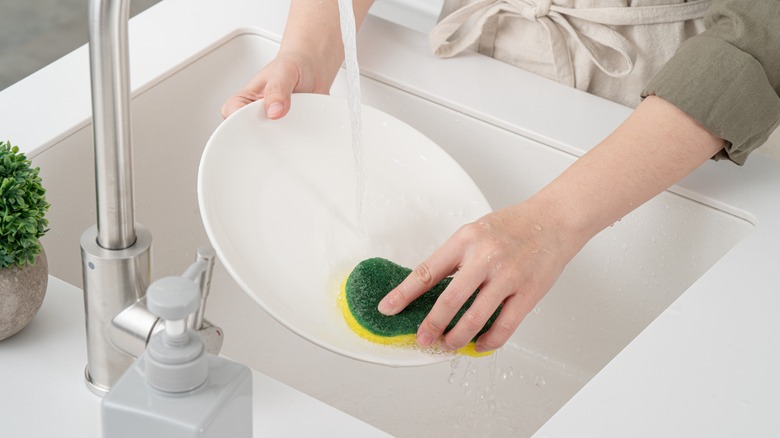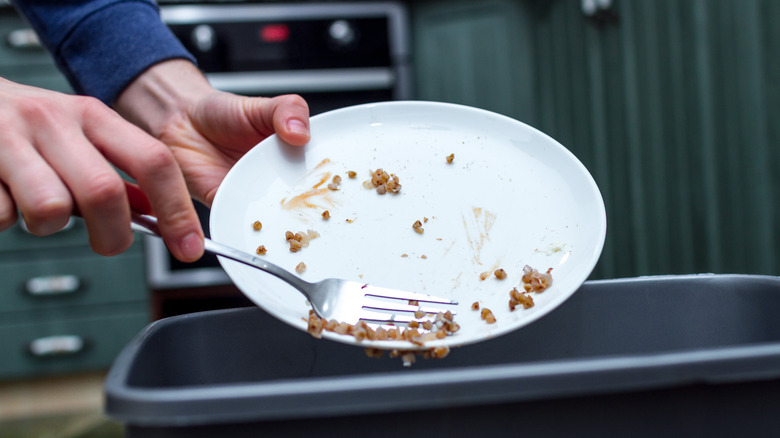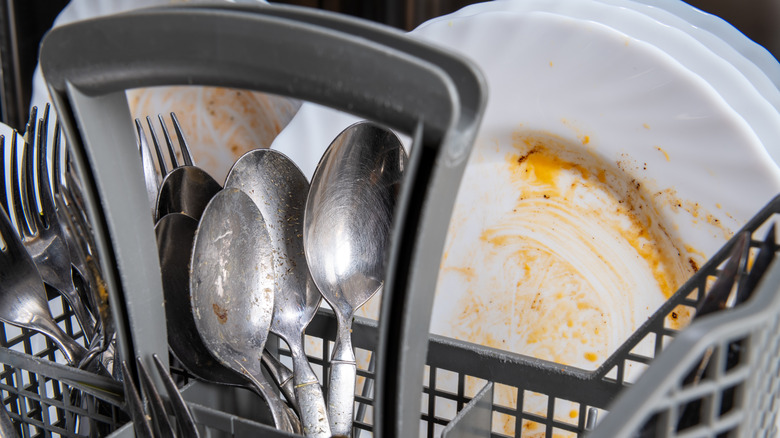Pre-Rinsing Your Dishes May Be A Waste Of Time
How many times have you caught yourself daydreaming while rinsing dishes to ready them for your dishwasher? While some people might find it to be a meditative task, others find it monotonous and wonder if it's really necessary — the answer is no, it's not. For the most part, rinsing your dishes before loading them in the dishwasher is a pretty pointless task, even for food that seems to be stuck on with superglue. In fact, the LA Times reports that dishwasher companies, detergent manufacturers, and experienced professionals all recommend that you don't rinse before giving them the dishwashing deep dive.
While some individuals claim that pre-rinsing your dishes means you'll never have to clean your filter basket, this is just a minor chore. Not only is it wasting water, but it can actually do more harm than good. If this is a dirty little habit that you refuse to let go of, perhaps now is the time. Because in the end, your dishwasher, wallet, and the planet will thank you.
Just scrape and load
Dishwashers are meant to handle food. That's because dishwashers made in the past 10 years have a special technology that can detect how much grease and caked-on food exists. These sensors automatically increase or decrease the amount of water accordingly. They are also responsible for controlling the cycle time and temperature, which means even those dishes with dried on egg yolk don't stand a chance.
Another perk of not having to rinse your dishes, besides saving time, is that you're also saving water. The average Energy-Star-certified dishwasher uses around four gallons of water or less per load. Kitchen faucets, on the other hand, can use anywhere from one to three gallons per minute, which means a lot of wasted water, and also a more expensive water bill. In fact, handwashing dirty dishes can use as much as five the amount of water as an efficient dishwasher, warns USA Today.
What if your dishes are still dirty?
If your dishes are still coming out with food particles stuck to them, there are a few things that might be causing the problem. Improperly loading your dishwasher by adding too many dishes, not putting the grossest dishes on the bottom rack, or blocking the spray arm, can hamper your washer's ability to do a good job.
If your dishwasher smells a little funky, or you can see a pile of leftover food debris hanging out in the bottom of it, then it's possibly time to clean out the drain filter. In order to keep your dishes sparkling, it's imperative to keep your dishwasher clean. Water temperature also plays a substantial role in whether your dishes get a subpar rinse – if your water temperature is below 120 degrees F, that's too low. Lastly, when it comes to powder, pod, or liquid detergent, it's best to check what your dishwasher's manufacturer says — when in doubt, check the manual.


